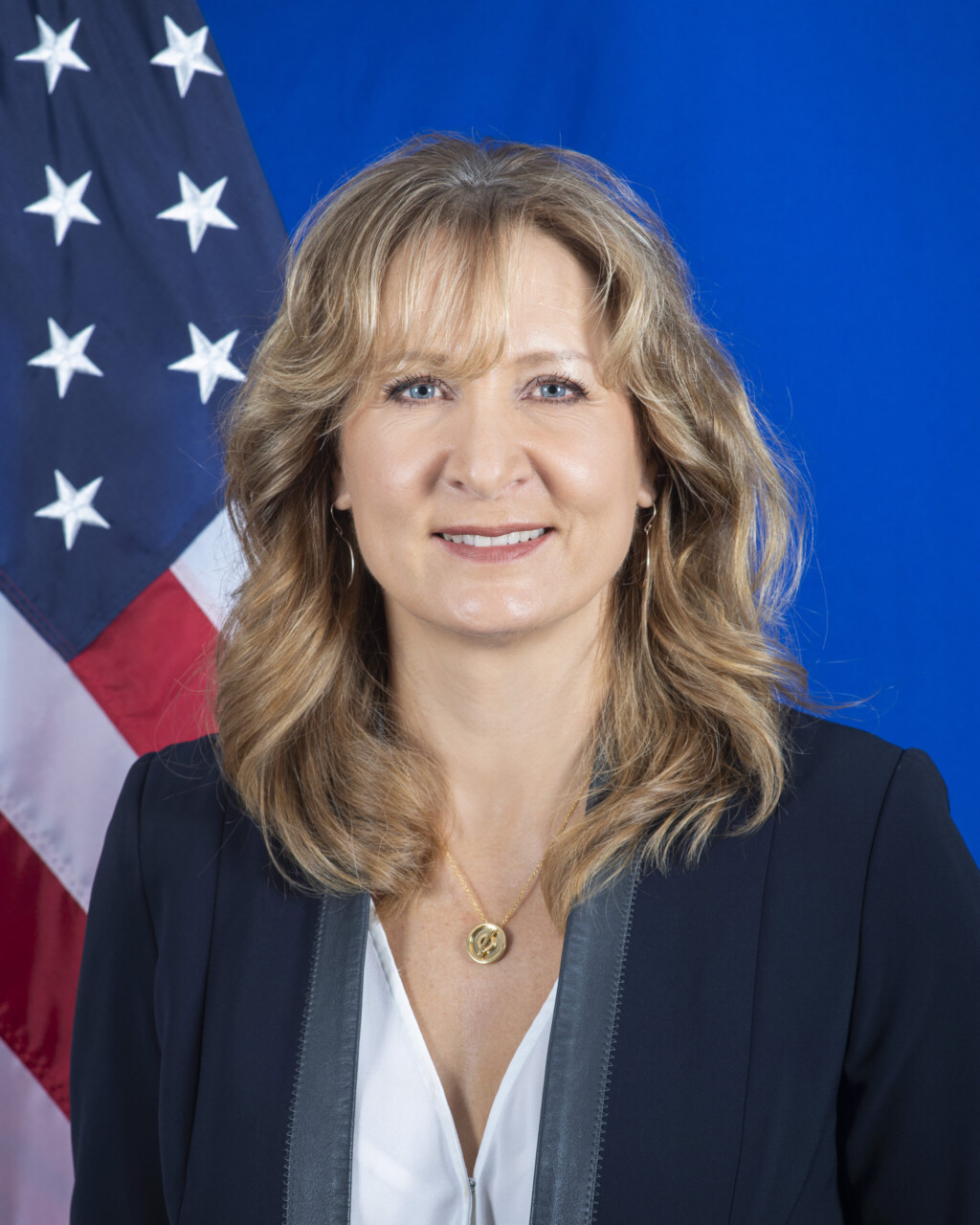US Department of State’s Africa Media Hub discusses Sudan crimes

Dr Beth Van Schaack was sworn in as the US State Department’s sixth Ambassador-at-Large for Global Criminal Justice on March 17, 2022 (File photo: US Dept of State)
The US Department of State’s Africa Regional Media Hub based in South Africa yesterday organised a discussion following a digital press briefing on Sudan by the US State Department Ambassador-at-Large for Global Criminal Justice, Beth Van Schaack, about the determination made by Secretary of State Antony Blinken that members of the Sudan Armed Forces (SAF) and the Rapid Support Forces (RSF) have unleashed ‘horrific violence’ in the country since mid-April.
On December 6, US Secretary of State Anthony Blinken officially accused the Sudanese army and the RSF for committing “war crimes, crimes against humanity, and ethnic cleansing” in Sudan since the outbreak of fighting on April 15.
Ambassador Van Schaack began the press briefing with numbers: “To date, according to the data we have, at least 10,000 people have been killed and over 6.8 million people have been displaced from their homes.” Thousands of people have been swept into detention sites in and around Khartoum, where we know that some have been tortured and some have been killed, Van Schaack stated.
The war has also been waged on the bodies of women and girls who have been terrorized by deliberate, systemic sexual violence inflicted by the RSF and its allied militia forces, she said. They are attacked in their homes; they are kidnapped from the streets; women and girls have been subjected to conflict-related sexual violence including rape, gang rape, and sexual slavery.
“Survivors are often unable to access any kinds of medical care or psychological support, thus leaving lasting trauma,” Van Schaack said.
Based upon a careful review of the facts and a legal analysis, the Secretary of State recently determined that members of the SAF and the RSF have committed war crimes, she explained. “He also determined that members of RSF and their allied militias have committed crimes against humanity and ethnic cleansing in Darfur.”
The US ambassador for Global Criminal Justice further said that the USA hopes “to rally the international community to help us end the violence, address the humanitarian crisis, and promote justice for survivors and victims”.
Van Schaack acknowledged the important work that journalists have done in this case. “They have not been deterred by the violence on the ground, and so we really appreciate, particularly some of the regional media centers, to continue to cover these issues.”
ICC
The USA applauded the recent announcement that alleged war crimes and crimes against humanity committed during the current fighting may be subject to investigation and prosecution before the International Criminal Court.
The ICC prosecutor’s office has announced that it has commenced focused investigations onto recent events. “And we urge all states to cooperate with this investigation.”
The USA will also continue to support Sudanese-led documentation efforts, particularly those that are survivor-centred and trauma-informed.
Assistance
The USA remains the largest single donor of humanitarian aid to the people of Sudan. “We’re providing nearly $895 million in total humanitarian assistance in Fiscal Year 2023 through USAID, through the Department of State’s Bureau of Population, Refugees, and Migration, and other sources.
“Finally, we are working to end the fighting through diplomatic means with a team of experienced diplomats, working with regional partners like IGAD and the African Union and other intergovernmental institutions to facilitate the delivery of humanitarian assistance, establish ceasefires and other confidence-building measures, and building towards a permanent cessation of hostilities,” Van Schaack stated.
“Sudan’s future – political future belongs to the Sudanese people. They deserve a future that fulfils their aspirations for freedom, peace, and justice. And we’re working with a number of partners to achieve this outcome,” she ended her briefing, after which she answered questions of the journalists attending the discussion.
Sources
On the question of Mohamed Nyala from Darfur24 about the Sudanese government’s refusal to allow the independent investigation committee as announced by the UN Human Rights Council in September, to do its work, Van Schaack answered that “it’s now possible to do very comprehensive investigations without ever stepping foot in the country.
“The fact-finding mission will be able to do the same with respect to those communities, but also will be able to review open-source information, satellite imagery. They will be able to scrub social media sites. They can utilize the work of journalists who are able to gain access to the country. And they have access to the reports produced by the Conflict Observatory at Yale.”
Mohamed Maher of the Egyptian Al Masry Al Youm newspaper wondered about the key findings that led to the determination of war crimes and ethnic cleansing in Sudan.
“We look at a whole range of sources of information,” Van Schaack replied. “As I mentioned before, we really look very closely at credible journalistic reporting, and thank you for all of you for covering this conflict so carefully. We also have our own internal intelligence sources that we’re able to review. We look at the reports that emerge from credible human rights organizations, including very large multinational organizations like the Human Rights Watches of the world.”
She added that “we also look at Sudanese-led documentation efforts. And we have our own Conflict Observatory that’s able to do very sophisticated open-source analyses.”
* The Africa Regional Media Hub, based in Johannesburg, South Africa, is part of the US Department of State’s Bureau of Public Affairs and works to connect US policy makers and experts with media in sub-Saharan Africa. As part of the Office of International Media Engagement, we work in collaboration with Public Affairs offices at US Embassies throughout Africa.











 and then
and then